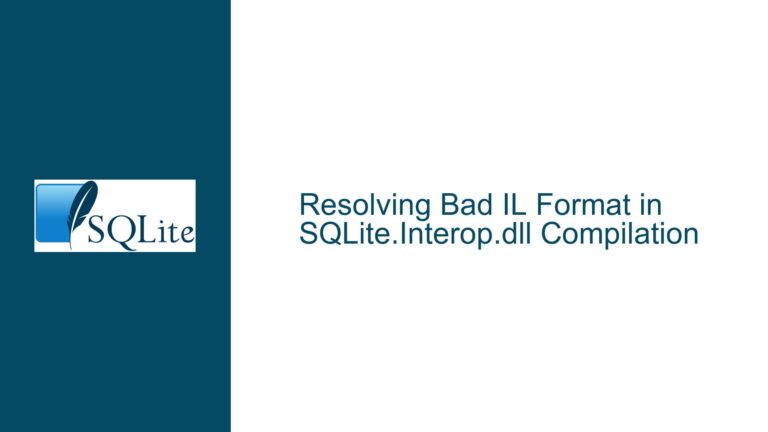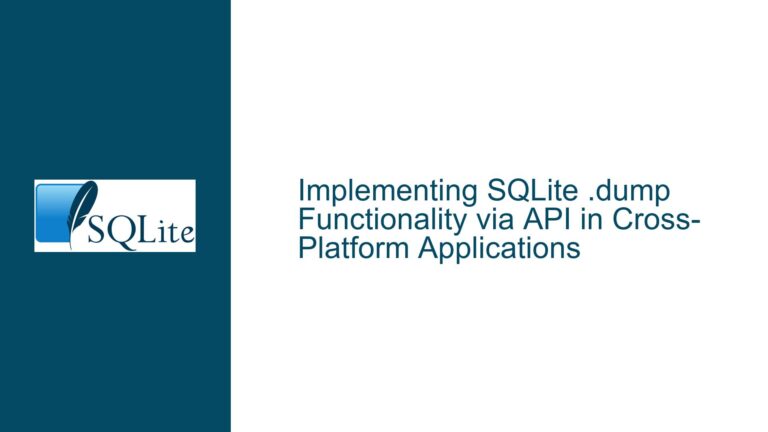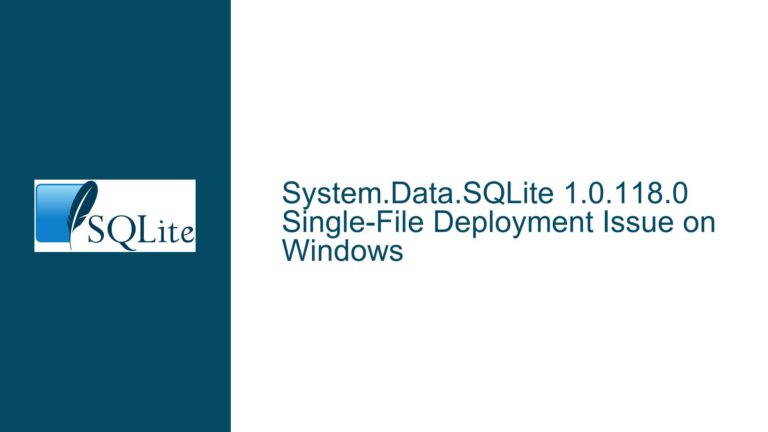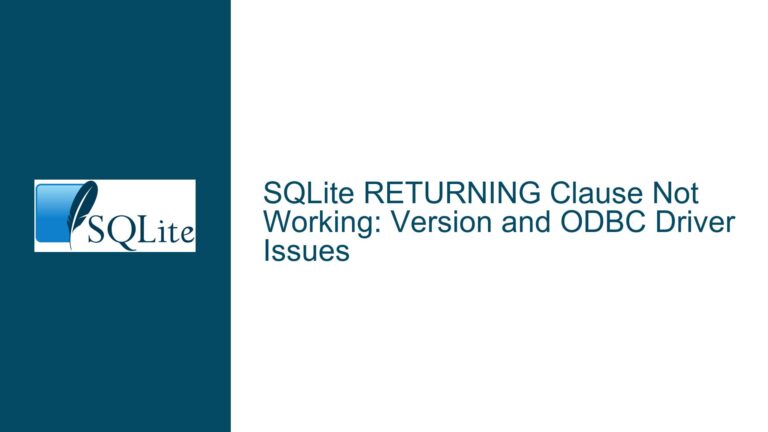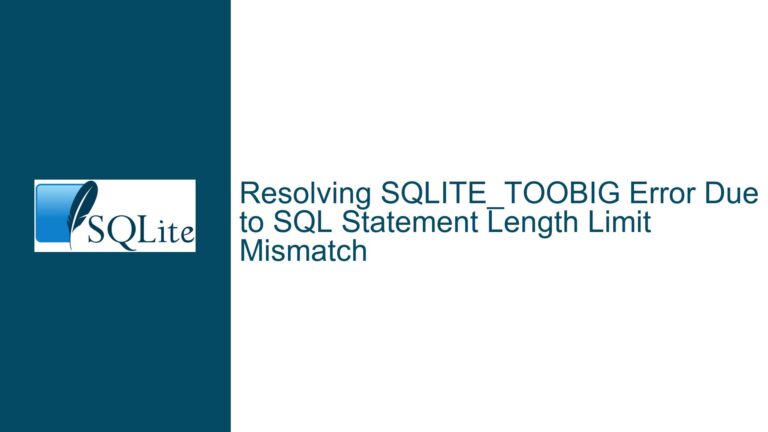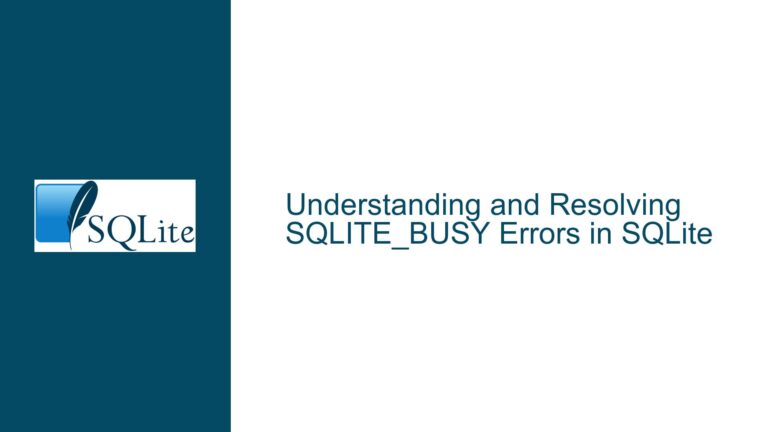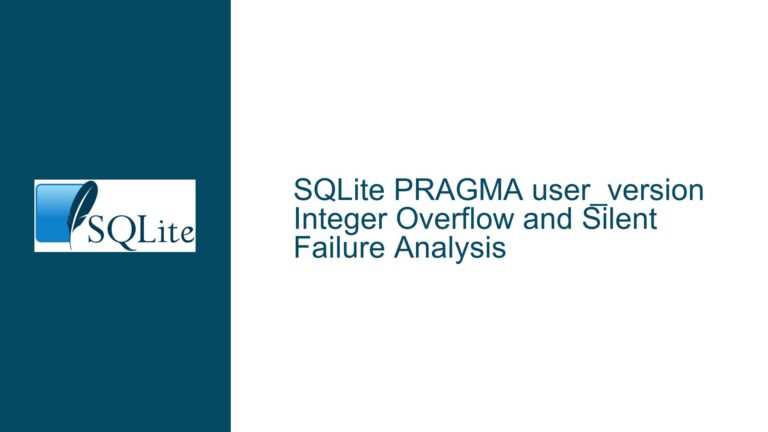In-Memory SQLite Database Sharing: Shared Cache vs. MemDB VFS
Understanding the Core Issue: Shared In-Memory Database Access in SQLite The core issue revolves around the need to share an in-memory SQLite database between multiple database connections within the same process. This is a common requirement in scenarios where multiple threads or components within an application need concurrent access to the same dataset without the…


